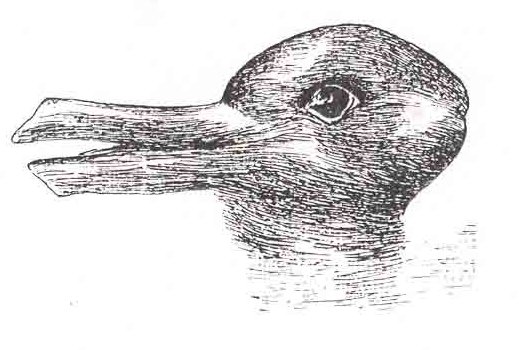Spiritual Discernment
In the scriptures, 1 John 4:1, John the apostle tells us, “Beloved, do not believe every spirit, but test the spirits, whether they are of God; because many false prophets have gone out into the world.” One of the gifts of the Holy Spirit is discernment. One definition given for spiritual discernment is the ability to see things as God sees them. In a world that continues to be at odds with the Word of and will of God, along with ever increasingly loud voices drawing people away, seeing things as God sees them becomes more and more tenuous.
In 2 Timothy we read, “But KNOW this, that in the last days perilous times will come . . .Evil men and impostors will grow worse and worse,deceiving (lying) and being deceived” (2 Timothy 3:1, 13). We live in a world that is deceiving and being deceived and we, as the Body of Christ, need to always be on guard discerning God’s will as we reach out to reconcile people back to the Savior, knowing that His arms are open to all who turn to him and away from embracing sin. When we embrace sin as a church, it only emboldens the world, that hates the Word of God, to approve of more unrighteousness.
James, the Lord’s half brother, declared this, “…don’t you know that friendship with the world means enmity against God? Therefore, anyone who chooses to be a friend of the world becomes an enemy of God.” What James is saying is that we need to discern what is of the world and what is of God, then by doing so, we always choose God. This is not an easy message to give. The Pharisees and ungodly rejected Jesus for giving this very message. The 8th chapter of John illustrates Jesus’ condemnation of those who rejected him when He discerned where the non-believing religious were coming from. How can we learn to discern the truth? Jesus said these words, “He that is of God, hears God’s words…” (John 8:47a).
Be blessed,
Pastor Chris
Read more
Not Just Auditing the Class
In Matthew, the seventh chapter, we see the words of Jesus expose individuals who claim the title of being a believer, but fail to follow Biblical instruction. In this passage, Jesus says, “Not everyone who says to Me, ‘Lord, Lord,’ will enter the kingdom of heaven; but he who does the will of My Father who is in heaven. Many will say to Me on that day, ‘Lord, Lord, did we not prophesy in Your name, and in Your name cast out demons, and in Your name perform many miracles?’ And then I will declare to them, ‘I never knew you; depart from Me, you who practice lawlessness.'”
Claiming to be a Christian does not always translate to truly being one of His disciples. The difference is that a disciple of Christ will not only seek to know what God’s will is according to the Word, being a mere hearer only, but they work to do the will of the Father as well.
In James 1:21-22, we find this scripture…”Wherefore lay apart all filthiness and superfluity of naughtiness, and receive with meekness the engrafted word, which is able to save your souls. But be ye doers of the word, and not hearers only, deceiving your own selves.” The word “hearers” comes from a Greek word that gives us the picture of a student who takes a class at college but never completes any of the lessons given to them. It is like a person who audits a class, they hear the lectures, but they never complete any of the assignments therefore never receive any credit at the end of the semester.
Verse 23 continues by informing us that those who hear the Word but do not do it, are only “deluding themselves,” Those who listen to the Word but never order their life accordingly are satisfied with religious activity but rejects a true relationship with Christ. They become satisfied with providing God tiny sacrifices in order to appease God, which never works, rejecting the grace of God freely given to those who humble themselves by receiving the gift of a true relationship with Christ.
Be blessed
Pastor Chris
P.S. I would love to hear from you. If you would like to comment or share opinions regarding this offering, feel free to email me at chrishayden60@sbcglobal.net
Read more
What We’re Here For: Preaching the Resurrection
Preaching the resurrection is the thing we do every Sunday more or less, is it not? The entire Christian life is a direct result of the resurrection of Christ. All of our work as pastors focuses on teaching people to live in the resurrection reality. All grief management, discipleship encouragement, judgment warning and instruction in righteousness grows directly from the fact that Jesus Christ has inaugurated the New Age in the midst of the Old Age.
One of the entailments of the resurrection of Christ is that if it is true (and it is) then Reality is profoundly different than we have been lead to believe. For one thing, philosophical pluralism, the mantra, the dogma, the unquestioned canon of contemporary western intuition is simply not true. And thinking that it is true turns out to be a stupefying mental error, one from which grows an enormous epistemological labyrinth that keeps smart people walking in moral circles indefinitely. There simply are not multiple Ultimate Truths. Nor are there multiple paths to the same Ultimate Truth. Jesus said, “I am the Way, the Truth, and the Life. Nobody comes to God except through Me.” Ultimate Truth is a Person, not an abstract concept. He is God. This means that the universe is the Personal expression of the Personal Creator, the result of His Word (Heb.11:3 ).
).
Secondly, the resurrection of Christ means that evil or sin is a deeper reality than energy or physics in the universe. Our world preaches the dogma that the universe is essentially “Matter, Motion, Time, and Chance” as Francis Schaeffer famously said. But if Jesus Christ is resurrected, that means that his excruciating and inhumane death accomplished what He said it was supposed to accomplish—the defeat of sin and death. That means that sin is a deeper reality and a more powerful thing than inanimate energy in the same way that cancer is more central to a human than clothing.
If you’re going to live the Christian life you have to live it on Jesus’ terms. That means you have to think about everything like Jesus, like God in the flesh does. And you have to decide to do this. There’s no other way. You can’t serve God and the Enlightenment, God and World Religions, God and Naturalism, God and Pluralism, God and Nationalism, God and Spiritism, God and Sex, God and Power, God and Money. It’s The Lord Christ or nothing. This is not an arbitrary decree from an insecure and co-dependent Deity. It is a fact. The universe only runs one way because it is the product of only One God, the Triune God, the Father, the Son, and the Holy Spirit. “But there are many ways of understanding reality, many truths” says the urbane and fashionably skeptical pluralist. “Who’s to say which is right?” The answer is: “How do you know that there are many truths?” The fact is that we only retreat to the “there are many truths” defense when there’s something we want to do that we’re pretty sure God would disapprove of, like wholesale sex, killing unborn people, or unbridled greed.
 The famous Duck-Rabbit illustration pops up in all of these discussions. The picture looks like a duck, but then when you look at it with different “eyes” it looks like a rabbit. If you tell people ahead of time that you’re going to show them a picture of a duck, that’s what they “see.” And everybody knows that “seeing is believing,” which means “seeing is knowing” right? So then, you “know” it’s a duck. Yet, if somebody tells you that “many scholars believe” it’s a rabbit, you begin to wonder of you should change your mind about it being a duck. Endless “conversations” (the polite pluralistic euphemism for arguments) ensue.
The famous Duck-Rabbit illustration pops up in all of these discussions. The picture looks like a duck, but then when you look at it with different “eyes” it looks like a rabbit. If you tell people ahead of time that you’re going to show them a picture of a duck, that’s what they “see.” And everybody knows that “seeing is believing,” which means “seeing is knowing” right? So then, you “know” it’s a duck. Yet, if somebody tells you that “many scholars believe” it’s a rabbit, you begin to wonder of you should change your mind about it being a duck. Endless “conversations” (the polite pluralistic euphemism for arguments) ensue.
But what if the Artist of the Duck/Rabbit picture steps on the scene and says, “It’s a duck.” Now we have a decision to make about reality. It is a decision of what to know, meaning what to believe is factually true about this issue. Our decision is not whether to believe/know that the picture is a duck or a rabbit, it is a decision to base our knowing on something other than our autonomous seeing and thinking. In other words, we face not simply a decision about ontology (whether the thing is a duck or a rabbit), but epistemology (how we know what the thing is). Do we “take the Artist’s word for it”? Or do we insist that our “seeing” is “knowing” and that therefore we are for all intents and purposes the ultimate interpreters and thus the creators in a certain sense of the picture? If we assume that we may decide whether it is a duck or a rabbit regardless of what the Artist says about it, then does that mean that the thing really is both a duck and a rabbit? Really? The Law of Non-Contradiction is non-existent? Do we really live that way in daily life? If we try to live this way, it is the beginning of insanity.
When Jesus of Nazareth rode into Jerusalem on that donkey colt at Passover in AD 30, he was presenting Himself as the Messiah, the center of reality, God in the flesh. The people wanted to believe He was their idea of Messiah, but He isn’t. He was purposely letting them think what they wanted to think, to interpret Him as they wished, according to their idea of Messiah. In a way, He was letting them think one thing about him when in fact there was a deeper and more profound reality. Only after the resurrection and only to a relative minority of the population (though a large group over a few weeks of time) did he reveal the Truth. But once that Truth was revealed it changed the view of everybody about everything.
Preaching the resurrection is preaching the gospel. It is the most stunning, astounding, life-transforming reality imaginable.
Just a Thought,
Pastor Rick
Read more

